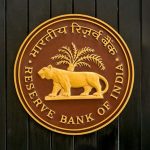The National Assembly Standing Committee on Finance, chaired by Syed Naveed Qamar, raised serious concerns on Wednesday over the government’s decision to allow sugar imports and waive related taxes, questioning the rationale behind these measures despite sufficient domestic stock, reports The Express Tribune.
The committee meeting also addressed legislative matters, including the Parliamentary Budget Office Bill and proposed amendments to the Corporate Social Responsibility (CSR) law. In addition, members sought clarification from officials regarding recent discussions between the government and business leaders about controversial budget measures.
During the meeting, Qamar pressed officials to explain the reasons for granting duty exemptions on sugar imports. Federal Board of Revenue (FBR) Chairman Rashid Langrial said that the Ministry of National Food Security would be better positioned to explain the policy decision, but confirmed that the FBR had implemented the cabinet’s order to reduce the 18% sales tax and 20% customs duty on imported sugar.
“Reducing taxes and duties on sugar helps lower market prices,” Langrial told the committee.
However, Qamar questioned the necessity of such imports, noting that there is no shortage of sugar in the country. He argued that the government should step back from regulating the sugar market.
Committee member Javed Hanif raised the issue of the International Monetary Fund’s (IMF) stance on these exemptions. Federal Finance Secretary Imdad Ullah Bosal confirmed that negotiations were ongoing and acknowledged that the government would eventually have to comply with the IMF’s terms.
The committee also sought an update on the government’s talks with business representatives who have voiced objections to certain budgetary measures. Minister of State for Finance Bilal Azhar Kayani confirmed that a meeting took place on Tuesday and that a committee had been formed to resolve the issues within a month.
The committee reviewed a report from a sub-committee regarding proposed amendments to the Corporate Social Responsibility (CSR) law. These amendments seek to mandate companies to allocate 1% of their net profits to social welfare projects.
The Securities and Exchange Commission of Pakistan (SECP) opposed the amendments. SECP Chairman said the changes would increase operating costs for businesses, especially since the issue initially applied only to oil and gas firms but was now being extended to all sectors.
The Finance Secretary supported the SECP’s position, stating that making CSR spending mandatory would raise production costs for companies.
However, Committee Member Nafisa Shah countered these claims. She argued that while firms already pay substantial taxes, including 18% sales tax and a super tax, the Ministry of Finance seemed particularly resistant to social sector spending. She noted that many companies were already contributing more than 1% voluntarily and supported the proposed changes.
Minister Kayani suggested that the SECP and Finance Ministry present revised proposals after consultations with relevant stakeholders. Committee Member Mirza Ikhtiar Baig added that consultations had already taken place with chambers of commerce and multinational firms.
The finance secretary requested additional time to review the matter further.
The committee is expected to revisit the sugar import and CSR issues in its upcoming sessions.

















